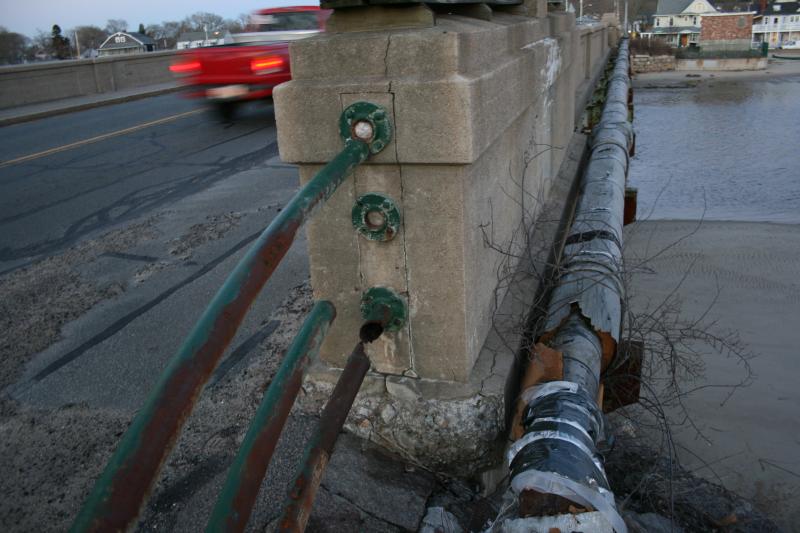Older parts of Wareham's sewer system crumbling as system expands
As Wareham expands its sewer system, the existing sewer infrastructure is crumbling in some areas, and officials are trying to devise a maintenance plan.
"We have more issues than we know about, and they're beginning to manifest," said Water Pollution Control Facility Director Guy Campinha.
According to Campinha, Onset was sewered in 1974 and Swifts Beach was sewered in 1978, and issues with "infiltration," back-ups, and general deterioration have begun to crop up.
The town began expanding the sewer system to more neighborhoods such as Weweantic, Briarwood, Cromesett, Oakdale, and Parkwood Beach in recent years in an effort to reduce pollution in Wareham's waterways.
According to Campinha, much of the Swifts Beach sewer system is in groundwater.
A number of repairs have been made to the aging system over the past few years, including one in Swifts Beach last April that was 15 feet below ground and cost $120,000.
"We had groundwater and sand coming into the system," said Campinha.
Campinha says that in that area, the water table is six feet below the ground, and with a break 15 feet below ground, the repair crew had to dig 20 feet to fix it.
Campinha says one of the options on the table is to install a "low pressure system" that would have sewer pipes no further than four feet below ground.
"We get it above the water table and it eliminates a lot of problems," Campinha said, adding that it makes repairs easier, and eliminates infiltration among other benefits.
The sewage in the system would be pumped out, instead of gravity carrying the muck from one place to another. The further the pipe has to travel in a system that relies on gravity, the further down -- and closer to the water table -- it goes.
Campinha says that the inappropriate disposal of items in the sewer system also takes its toll, and that's exactly what caused the sewer to back up on West Boulevard in Onset last January.
"On a daily basis we're faced with cleaning pumps so they can operate," he said. "Every single day, that's our major issue: keeping our pipes running."
In the incident on West Boulevard, a blockage prevented sewage from reaching the Lopes Field pumping station, resulting in an overflow on to the street. Shellfishing was temporarily shut down in numerous areas by the state Division of Marine Fisheries as a result of the overflow. It took 5½ hours to clear the blockage.
Campinha says that it was a combination of building products, paper products, and a lot of cooking grease that caused the problem.
Parts of Onset Bay were closed to shellfishing again last May after an issue with the sewer system caused a spill near the Onset Pier.
Another unexpected cost came in March, 2011, when one of the older sewer pipes on the Stone Bridge in Onset ruptured. A replacement pipe cost approximately $136,000.
The money to fund such expenses comes from the expense budget of the Water Pollution Control Facility, Campinha said.
"We're self-sufficient in that we use our revenue" to pay for expenses, which is generated by the fees paid by sewer users and separate from the town's general coffers, Campinha explained.
Campinha says the Sewer Department is aware of the maintenance issues, and is working on a comprehensive plan to identify issues throughout the system.
The plan involves evaluating all the pumping stations in Wareham, as well as pipes throughout the system.
"We're evaluating everything," Campinha said. "We need to know where we are so we can get to where we're going."












